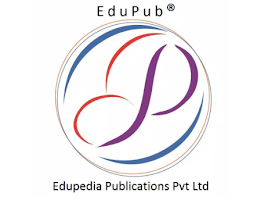Publisher: Edupedia Publications Pvt Ltd
Publication Year: 2024
Submission Email: editor@pen2print.org
Overview: Edupedia Publications Pvt Ltd is pleased to invite authors to contribute chapters to our upcoming book titled "Fundamentals of Research Methods." This comprehensive volume aims to serve as an essential resource for students, educators, and professionals involved in academic research across various disciplines. We seek to provide readers with a foundational understanding of research methodologies, techniques, and tools that are crucial for conducting effective and ethical research.
Themes and Sub-Themes: We are interested in chapters that cover, but are not limited to, the following topics:
Introduction to Research Methods:
- Historical Development of Research Methodologies
- Key Concepts in Research Design and Methodology
Qualitative vs. Quantitative Research:
- Overview and Comparison
- Mixed-Methods Approaches
Data Collection Techniques:
- Surveys and Questionnaires
- Interviews and Focus Groups
- Observational and Experimental Methods
Data Analysis and Interpretation:
- Statistical Analysis for Quantitative Data
- Content Analysis for Qualitative Data
- Software Tools for Data Analysis
Ethical Considerations in Research:
- Informed Consent
- Privacy and Confidentiality Issues
- Ethical Approval Processes
Writing and Presenting Research:
- Crafting Research Proposals
- Writing Effective Research Papers
- Best Practices for Publishing and Dissemination
Guidelines for Contributors:
- Chapters should be original work and should not be under consideration for publication elsewhere.
- Contributions must be between 3000 to 5000 words, including references, tables, and figures.
- All submissions must adhere to the APA (American Psychological Association) style for citations and references.
- Submissions should include a title, abstract (200 words), keywords, main text, and references.
- Each chapter should provide clear takeaways and practical implications for readers.
Important Dates:
- Abstract Submission Deadline: June 11, 2024
- Notification of Abstract Acceptance: July 12, 2024
- Full Chapter Submission Deadline: August 10, 2024
- Peer Review Feedback: September 3, 2024
- Final Chapter Submission: October 2, 2024
- Publication Date: November 2, 2024
Submission Process: Interested authors should first submit an abstract (up to 200 words) outlining the chapter's content, objectives, and its relevance to the book's themes. Abstracts should be sent to editor@pen2print.org. After review, selected authors will be invited to submit full chapters.
Review Process: Each submitted chapter will undergo a double-blind peer review process to ensure quality, relevance, and integrity of the work. Feedback will be provided to authors for necessary revisions to meet the publication standards.
Contact Information: For inquiries regarding the call for chapters or submission process, please contact the Editorial Team at editor@pen2print.org. We look forward to your contributions and to collaboratively developing a resource that will be invaluable for the academic community.
Join us in shaping a comprehensive guide that explores and elucidates the fundamentals of research methodologies!














.jpg)













.jpg)


